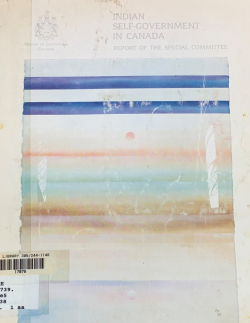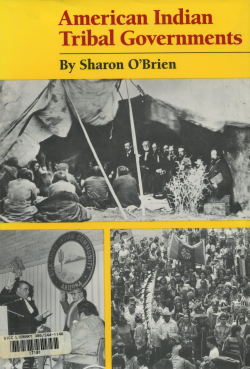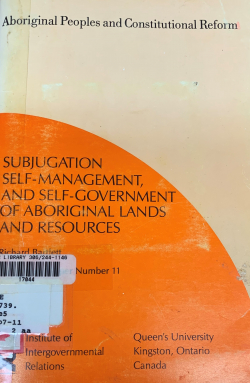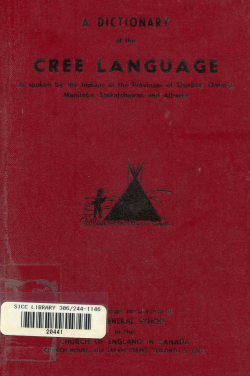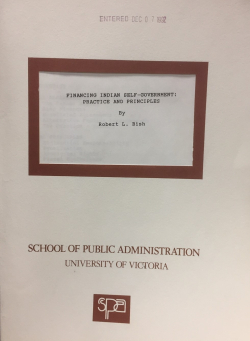A fatherly eye : Indian agents, government power, and Aboriginal resistance in Ontario, 1918-1939

Type
Book
Authors
Robin Brownlie ( Brownlie, Robin )
ISBN 10
0195417844
ISBN 13
9780195417845
Category
General Library Collection
[ Browse Items ]
Publication Year
2003
Pages
232
Subject
Indigenous peoples -- Canada -- Government relations -- 1860-1951
Tags
Canada. Dept. of Indian Affairs -- History, Indian Agents -- Ontario -- Georgian Bay Region, Paternalism -- Canada -- History, John McLean Dally, Robert J. Lewis, Indigenous peoples -- Ontario -- Georgian Bay Region -- History, Indigenous peoples -- Ontario -- History -- 20th century, Indigenous peoples -- Canada -- Government relations -- 1860-1951, Indigenous peoples -- Canada -- Government relations, Indigenous peoples -- Government relations, Indian agents, Paternalism, Ontario -- Georgian Bay Region, Ontario, Indigenous peoples -- Cultural assimilation -- Ontario, Indigenous peoples -- Cultural assimilation, Cultural Assimilation
Abstract
"For more than a century, government policy towards Aboriginal peoples in Canada was shaped by paternalistic attitudes and an ultimate goal of assimilation. Indeed, remnants of that thinking still linger today, more than thirty years after protests against the White Paper of 1969 led to reconsideration Canada's 'Indian' policy. In A Fatherly Eye, historian Robin Brownlie examines how paternalism and assimilation during the interwar period were made manifest in the 'field', far from the bureaucrats in Ottawa, but never free of their oppressive supervision. At the same time, she reveals how the Aboriginal 'subjects' of official policy dealt with the control and coercion that lay at the heart of the Indian Act.
This groundbreaking study sheds new light on a time and a place we know little about. Brownlie focuses on two Indian agencies in southern Ontario - Parry Sound and Manitowaning (on Manitoulin Island) - and the contrasting management styles of two agents, John Daly and Robert Lewis, especially during the Great Depression. In administering the lives of the Anishinabek people, the government paid inadequate attention to the protection of treaty rights and was excessively concerned with maintaining control, in part through the paternalistic provision of assistance that helped to silence critics of the system and prevent political organizing. As Brownlie concludes, the Indian Affairs system still does not work well, and 'has come to represent all that is most oppressive about the history of colonization in this country'."--Amazon.
This groundbreaking study sheds new light on a time and a place we know little about. Brownlie focuses on two Indian agencies in southern Ontario - Parry Sound and Manitowaning (on Manitoulin Island) - and the contrasting management styles of two agents, John Daly and Robert Lewis, especially during the Great Depression. In administering the lives of the Anishinabek people, the government paid inadequate attention to the protection of treaty rights and was excessively concerned with maintaining control, in part through the paternalistic provision of assistance that helped to silence critics of the system and prevent political organizing. As Brownlie concludes, the Indian Affairs system still does not work well, and 'has come to represent all that is most oppressive about the history of colonization in this country'."--Amazon.
Number of Copies
1
| Library | Accession No | Call No | Copy No | Edition | Location | Availability |
|---|---|---|---|---|---|---|
| Main | 34982 |
E92.B74 2003 |
1 | Yes |
